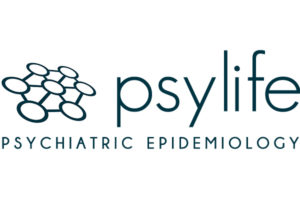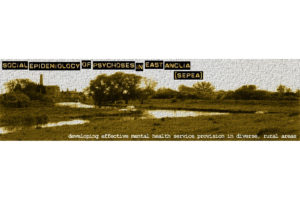PsyLife - Understanding the social determinants of psychosis & other mental health problems over the life course
Duration: 2014-present
Setting: Various, including Swedish national register data, ALSPAC birth cohort (UK), and the National Longitudinal Study of Children & Youth (NLSCY, Canada)
Funders: Wellcome Trust & Royal Society, MHRUK
Conducted at: Division of Psychiatry, UCL
PI: Prof James B. Kirkbride
Partners: Prof Ian Colman (University of Ottawa); Prof Christina Dalman (Karolinska Institutet)
Aim: To delineate the burden and social and environmental determinants of psychosis & other mental health problems
Method: Various methodologies, including causal inference methods applied to longitudinal datasets of mental health problems. Methods include causal mediation analysis, genetically-informed modelling, multilevel survival analysis, and other multilevel models.
Main findings: In ALSPAC, we demonstrated that the association between greater neighbourhood deprivation at birth and psychotic symptoms in adolescence was not explained by polygenic risk for schizophrenia [13]. We have also shown that children who live in neighbourhoods with higher levels of perceived neighbourhood stress and discord were more likely to report psychotic experiences during adolescence [12].
In nationwide Swedish data, we used causal mediation analysis to show that up to a quarter of the association between urban birth and later risk of psychotic disorder could be attributed to effects on cognition, if causal [10].
In other Swedish register studies, we have shown increased risk of mental health problems amongst migrants and their children appear specific to psychotic rather than affective domains of neuropsychopathology [3], and are influenced by family [2] and neighbourhood [1] social support during and after migration. Moving house more often and over longer distances in childhood and adolescence (but not adulthood) also predicts increased future risk of psychotic disorder [11].
We were the first group to conclusively demonstrate that refugees were more likely to experience psychosis than Swedish-born individuals and non-refugee migrants from the same regions [7]. We have shown elevated risks in refugee and other migrant groups do not exist for suicide [6] or substance use disorders [4], but rates of these mental health problems converge to Swedish rates over time. Migrants also experience more adverse pathways to psychiatric care [5,14].
Using Canadian data, we have also shown that children growing up in more adverse neighbourhoods are more likely to report mental health difficulties in adolescence [8]. However, we have also shown that growing up in positive environments, with high levels of social capital, can protect children against mental health problems in adolescence following exposure to stressful life events [9].
Impact: Results have furthered our understanding of the social aetiology of psychotic disorders, and could aid population-level prevention strategies for improving mental health in different communities.











